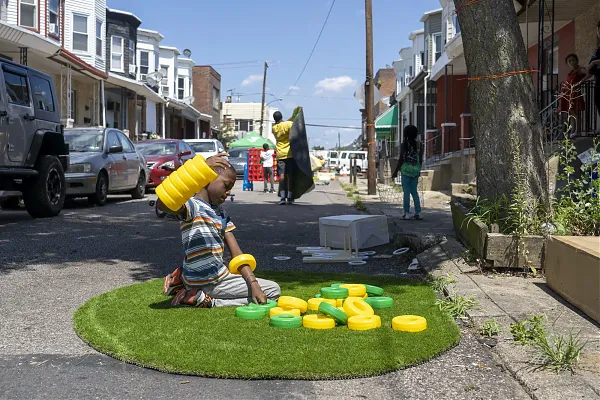Burned Out Parents Need Better Public Spaces

A Philadelphia Playstreet. Photo by Ken McFarlane/Philadelphia Parks & Recreation.
Family life has always been stressful. But a recent declaration by the US Surgeon General that parenting is a public health crisis has reignited conversations about how families might stop the endless spiral of expectation. What’s been less discussed is how the physical design of housing, transportation and public space makes life harder by increasing commute times, reducing communal play spaces and creating barriers to children’s mobility.
Parenting experts say children need to learn independence and resilience. But cities and suburbs don’t offer safe pedestrian and bike routes to school, malls kick teenagers out on the weekends, and free time disappears under a spreadsheet of activities. All of those “musts” take more of the parents’ time or money to navigate, because the child can’t do it on their own.
As Darby Saxbe, a clinical psychologist, recently wrote in the New York Times, “underparenting requires structural change.” Unlike most political pundits, she’s not just talking about economic policies like family leave and subsidized child care. She’s talking about actual physical structures, and the cultural change required to populate them. We need to “build back our tolerance for children in public spaces,” she writes, “and create safe environments where lightly supervised kids can roam freely.”
On X
Follow @LangeAlexandraOn Instagram
Featured articles
CityLab
New York Times
New Angle: Voice
Getting Curious with Jonathan Van Ness